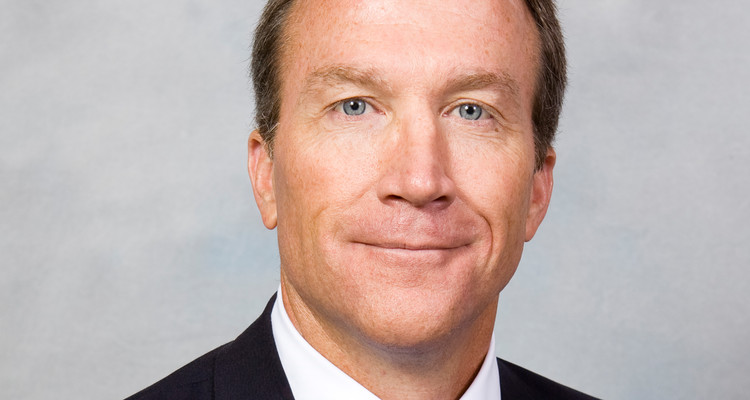There is not one clear path to reaching the CFO position – there are a number of them. Studies have shown that if a CFO is sourced internally, most are promoted from a controller role. If hired from the outside, almost all were sitting CFO’s in their previous position. Either way, how does a person best transition, or position themselves to being promoted into a CFO position? Good controllers don’t necessarily make top-performing CFO’s, however if that’s your career objective, there are several fundamental changes you can begin to develop to ensure you get the nod when the opportunity surfaces.
The Role of a CFO (and How It’s Different Than a Controller)
I was a CFO before transitioning into executive search more than 12 years ago, and had been a controller prior to that, so take it from me, the title is not the only difference. As a CFO and a member of the strategic leadership team, my focus was on creating value by recognizing economic business drivers and ensuring sufficient capital was available to execute risk-justifiable investments that provided an ROI in excess of our weighted-average cost of capital.
While a background and a full understanding of the numbers is a must, a CFO has deeper responsibilities that require a dedication to organizational goals, full participation in strategy creation, and expert knowledge on the tactics the company employs. As CFO, you are an integral part of the executive leadership team so just knowing the numbers simply won’t cut it.
Requirements to Being a Successful CFO
Generally speaking, there are two pillars of experience required of all CFO’s and the career track requires getting experience in both. One pillar is related to finance functions and the other pillar is related to accounting functions. I know a top-performing, sitting CFO who jokes about having never having prepared a journal entry. The truth is that this person possesses a personality and leadership skills that positioned him to be trusted by his CEO as a strategic business partner. Let’s discuss what a few of these skills include.
- Collaborative Leadership:
Top-performing CFO’s seek solutions from others and use all the resources available to explore options. Once a decision or direction is determined, they get the buy-in of others and drive consensus-building in the execution of decisions.
- Relationship Building:
Top-performing CFO’s become the go-to person for information and advice from all others throughout an organization. This is accomplished by having trusted partner relationships with everyone in an organization, including the trust of the leadership team.
- Subject Matter Expert:
Top-performing CFO’s are creative in their thought processes and the solutions they propose. In order for this to be accomplished, one must be a subject matter expert in all things affecting a business. When exploring solutions, playing with different alternatives results in the best outcomes.
- Empathy and Humility:
Top-performing CFO’s, generally speaking, are more empathetic than controllers, as well has having a higher tolerance for ambiguity and assuming risk-based challenges. The best CFO’s I’ve encountered in my career are also disengaged from their personal ego in their business relationships.
- Communication:
Top-performing CFO’s need to posses the ability to persuade others to foster a collaborate environment, as well as put an understandable narrative to the numbers/operating results for consumption by the leadership team. I’ve been an adjunct instructor in the MBA program at the University of St. Thomas for years. Jack Judd, the sitting CFO at Proto Labs, has been a guest speaker in my Corporate Finance class several times and is always asked by one of the students, “What qualities make a good CFO?” Jack’s consistent response includes the ability to communicate effectively. I couldn’t agree with Jack more.
Now that we’ve identified these skills, let’s discuss how controllers can learn top-performing CFO behaviors, which first begin with a complete, in-depth, and honest assessment of one’s self. Whatever position you happen to hold at the moment, becoming a CFO may require a rather dramatic re-wiring of who you are today. Learning about yourself from your own experiences and feedback from others can happen simultaneously. The following are a few suggestions on where to begin your journey:
- Find a career advocate, not simply a mentor, but someone who will make the commitment to your personal development with your ultimate career goal in-mind. Someone who has been in your position before and has successfully transitioned into a CFO role.
- Join a finance leadership roundtable. These are typically available through industry networking organizations.
- Get feedback from others on your own personal leadership style to get an accurate perspective on what needs to be developed.
- Begin using others in your organization as resources, and more importantly, begin positioning yourself as a resource to others…what goes around comes around.
- Look for opportunities within your organization to collaborate with others. You want to begin developing a reputation and characteristic as a team player now.
- Become an empathetic people person while building new, or rebuilding existing, relationships with others in your organization.
All in all, being a good controller doesn't necessarily mean you’ll make a good CFO. It’s not a position for everyone. Determine your potential by assessing yourself, reaching out to others, and identifying your leadership ability. The job of a CFO in any organization is extremely rewarding and well worth the effort.







